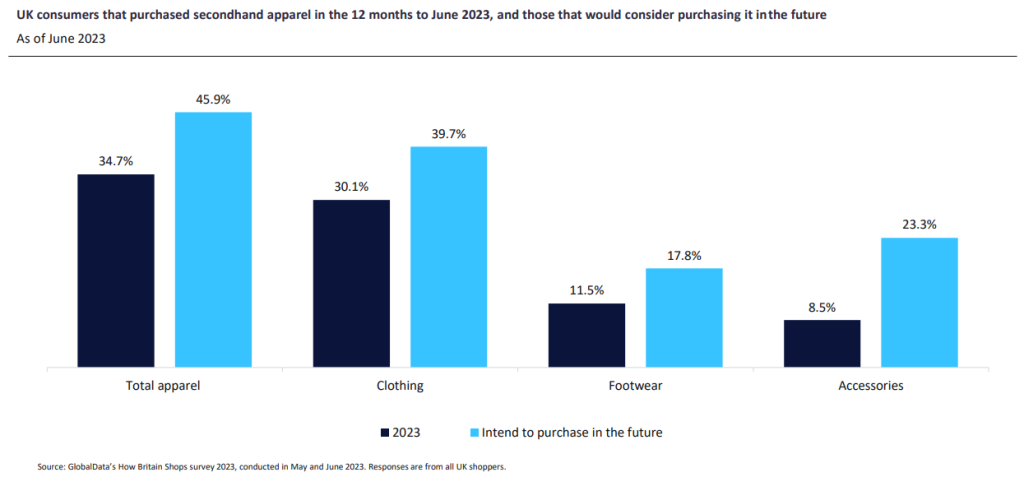
Depop explained sellers listing items on the platform will now receive more cash in their pocket from each sale thanks to the removal of its selling fee for all new listings.
The move aims to empower its growing community to earn more from their wardrobes, offer improved value and choice for buyers, and encourage a wider audience to try selling and join the secondhand revolution.

Discover B2B Marketing That Performs
Combine business intelligence and editorial excellence to reach engaged professionals across 36 leading media platforms.
According to Depop, this change comes as the resale industry continues to grow, encouraging an expanding audience of fashion lovers to tap into the value of unused items sitting in their wardrobes.
Kruti Patel Goyal, CEO of Depop, said: “We want to invite as many people as possible into Depop’s circular fashion community, and we’ll achieve that by making the experience easier, more rewarding and more inspiring than ever.
“This change will give sellers more cash in their pocket from each sale, empowering our existing community – as well as those who may be new to resale – to list more, sell more and earn more while contributing to a more circular fashion system. Encouraging more listers and more listings means offering greater choice for buyers – helping them to find the items they love, at the right price.”
The platform said the zero selling fees are for sellers located in the US and to US dollar sales only, however, the usual payment processing fee will still apply.

US Tariffs are shifting - will you react or anticipate?
Don’t let policy changes catch you off guard. Stay proactive with real-time data and expert analysis.
By GlobalDataDepop pointed out the removal of selling fees is part of a wider update to its fee structure, which also includes the introduction of a small marketplace fee for buyers in the US from 18 July onwards. The evolved fee structure in the US follows Depop’s move to remove selling fees in the UK market earlier this year.
The marketplace fee has been set up to 5% of the item purchase price, plus a fixed amount of up to $1, excluding taxes and postage costs.
The fee is expected to support continued investment across the Depop experience, including Depop protection, customer support, platform improvements and growing the community – fostering a dynamic marketplace that opens up access to the circular economy.
The platform shared it ranked as the fourth “most popular” online shopping site for US upper-income teens in Spring 2024 which it believes suggests a consumer trend reflective of the growing Depop community.
UK secondhand market expected to boom as shoppers look for bargains
GlobalData’s The Apparel Market in the UK to 2028 report highlighted that in the UK apparel industry in particular clothing shares are expected to fall by 0.4ppts to 72.1% between 2023 and 2028 as consumers invest in capsule wardrobes and become less receptive to the latest trends.
According to the report, UK spend will also continue to be diverted into the resale market, as shoppers are increasingly drawn to shopping secondhand to find bargains.

Data further pointed out that more UK consumers are considering purchasing secondhand apparel in the future, with a particular rise expected in accessories.
A recent survey from Depop revealed that Nike topped the list of most sought-after goods on resale sites, followed by Ralph Lauren, Levi’s and Zara as the most listed clothing brands.
There has been continued efforts by the industry to make it more sustainable and circular. The climate action NGO Waste and Resources Action Programme (WRAP) has been advocating for support through grants, investments and legislation so the secondhand clothing market can fuel the transition towards a more circular fashion ecosystem.
It warned in its report published in April that the UK does not have sufficient infrastructure to accommodate all the clothing and textiles that are being discarded and that recycling and reuse organisations need urgent support to avoid sending textile waste to landfills.





